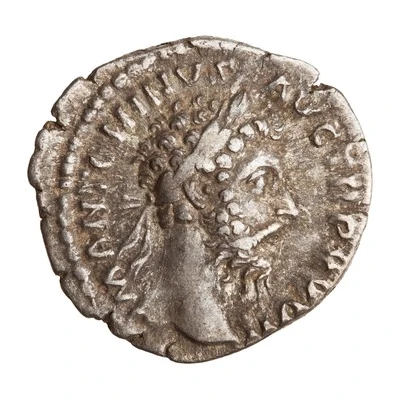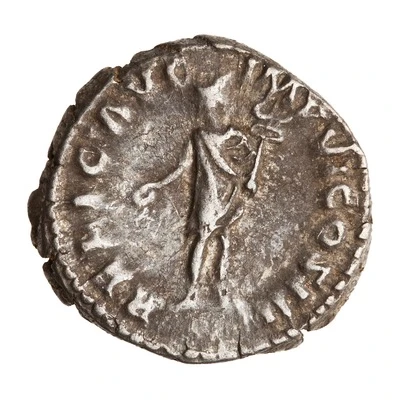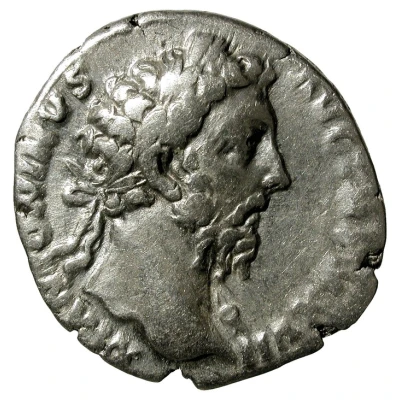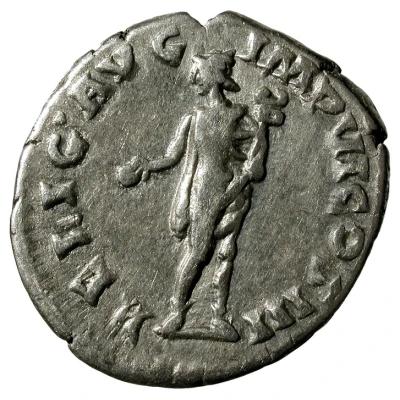


© American Numismatic Society (ANS)
Denarius - Marcus Aurelius RELIG AVG IMP VI COS III; Mercury
| Silver | 3.3 g | 17.5 mm |
| Issuer | Rome › Roman Empire (27 BC - 395 AD) |
|---|---|
| Emperor | Marcus Aurelius (Marcus Aurelius Antoninus) (161-180) |
| Type | Standard circulation coin |
| Years | 172-173 |
| Value | 1 Denarius |
| Currency | Denarius, Reform of Augustus (27 BC – AD 215) |
| Composition | Silver |
| Weight | 3.3 g |
| Diameter | 17.5 mm |
| Shape | Round (irregular) |
| Technique | Hammered |
| Orientation | Coin alignment ↑↓ |
| Demonetized | Yes |
| Updated | 2024-10-05 |
| Numista | N#262952 |
|---|---|
| Rarity index | 100% |
Reverse
Mercury, wearing petasus and short cloak, standing front, head left, holding patera in extended right hand and caduceus in left hand.
Script: Latin
Lettering: RELIG AVG IMP VI COS III
Translation:
Religio Augusti. Imperator Sextum, Consul Tertium.
The religion of the emperor (Augustus). Supreme commander (Imperator) for the sixth time, consul for the third time.
Comment
Mass varies: 2.88–3.68 g;Diameter varies: 16.5–18 mm;
Example of this type:
American Numismatic Society (ANS)
Source:
Online Coins of the Roman Empire (OCRE)
Interesting fact
The Denarius coin featuring Marcus Aurelius, which was minted between 172-173 AD, is considered to be one of the most well-preserved examples of Roman coinage from that time period. Its excellent state of preservation is likely due to the fact that it was minted using a new technique that was introduced during Marcus Aurelius' reign, which involved striking the coins multiple times to create a more detailed and precise image. This technique, known as "multi-striking," resulted in coins that were not only more aesthetically pleasing but also more durable and less prone to wear and tear. As a result, many of these coins have survived in excellent condition to this day, providing a valuable glimpse into the economic and cultural practices of ancient Rome.

